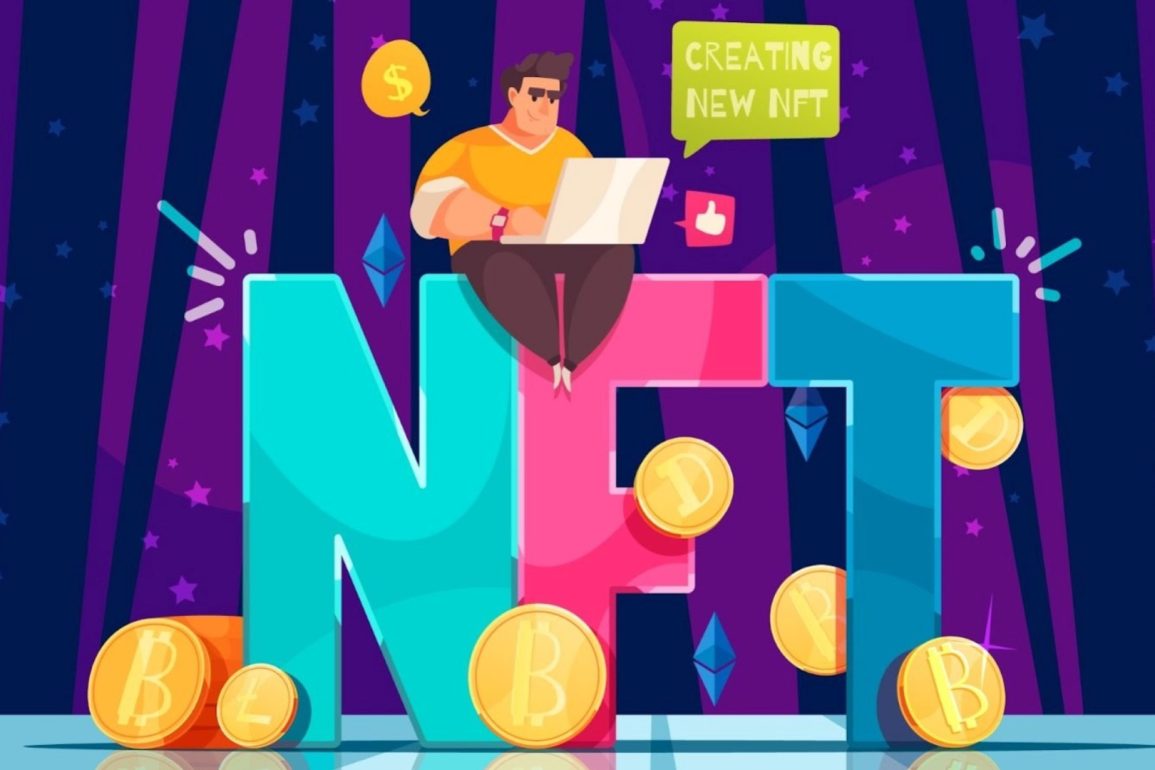- Summary:
- Non-Fungible Tokens (NFT) have stirred up debate as to whether they are viable investment assets. So what are they and are they worth it?
Can you invest in NFT? This is among the most asked question across the world among investors. Most investors don’t know how to invest in NFT projects because they are unfamiliar with the concept around it. Cryptocurrencies and associated products have experienced wild price fluctuations in the last few months, drawing the attention of creative professionals, enthusiasts, and investors towards digital assets.
With the collapse of most digital markets, many have dismissed NFTs as merely another unsustainable bubble that was poised to burst from the onset. Notwithstanding the troubles experienced over the past year, NFTs have numerous advantages in the business world and opportunities for creators and investors. So, can you invest in NFTs? Read on to find out more.
Is It A Good Idea To Invest Money In NFTs?
Many people invest money in NFTs because they see the massive possibility of profit in reselling. In most cases, investors make a tidy gain from the resale of NFT projects. Because of the high selling value, the first buyer will typically aim to buy low to sell high. However, there are no guarantees that you will sell at a profit. The true value of an NFT is subjective and largely depends on what the buyer sees in it.
The Efficacy of NFT Projects
NFT projects allow for tracking of ownership and the creation of high-value items/products with loyal fanbases. NFT items may be in form of an image, a work of art, a musical fragment, or a piece of an in-game item. The blockchain technology used to curate and deploy NFTs is the same distributed ledger system used for Bitcoin and other cryptocurrencies. While many people invest in Ethereum-based NFT projects, ta significant number also use other blockchain application platforms like Solana, crypto robo, or Polkadot.
Another way to think of a digital token is as a digital claim or document that may be used to prove ownership of a physical asset such as real estate buildings. Their digital designs serve as digital proof of ownership for items in the physical world. However, there are complex legal ramifications in using NFTs as ownership documents for items in the physical world. Therefore, NFT use cases are currently majorly concentrated in the digital space.
Like any other digital space, the NFT market has its share of fraudsters. Many people advertise NFT projects without really owning the intellectual property or acquiring rights to the actual item being offered. Therefore, it’s prudent to investigate any buy thoroughly before making any commitment. NFT markets often have agreements in place and a license that can be used to trade NFTs legally. Also, specific NFTs may have specialized licensing rights that aren’t shared with other industrial sectors.
In some instances, problems have arisen due to fake NFTs, just as they have in other domains of technological areas. Therefore, examining the background of the first NFT creator is essential for every NFT investor. Even if the dealer is trustworthy, the result of the transaction may disappoint you. Furthermore, NFT transactions have also shown significant volatility.
How to acquire an NFT
NFTs are bought and sold on a dedicated site, like Amazon or Etsy, but holders can also sell them directly to buyers in exchange for crypto assets. NFT marketplaces enable users to buy NFTs at a defined price or compete with other buyers through auctions. Each NFT item is unique, unlike stocks and cryptocurrencies. This means that while one share on Neflix is exactly the same as any other Netflix share, one NFT is totally different from the other. Similarly, one Bitcoin is comparable to every other coin.
If you want to buy NFTs, you’ll need an online cryptocurrency wallet issued by an NFT market platform. You will also need some crypto in your wallet to pay for the gas fees for the transaction. Ethereum is by far the most dominant network in the NFT ecosystem, meaning that you will likely need some Ether. You can then buy NFTs from marketplaces like OpenSea, Rarible, and SuperRare, which are some of the most popular NFT markets.
For you to sell an NFT, you will need to “mint” it. Minting means publishing it on a blockchain so that it can be bought. Since NFTs run on blockchain technology, some platforms like Rarible allow you to set the percentage of royalty you would like to receive for subsequent sales. That way, if you set the figure at 10%, for example, you will automatically earn 10% from all future sales of the piece.
The Bottom Line
We hope that now you know how you can invest in NFT and the importance of doing a proper background check on any NFT you intend to invest in. Note that NFT platforms have different ways of levying their charges. Some will charge the seller a minting fee, while some will charge you a percentage following a successful sale. As an NFT buyer, it is important that you know the transaction fees, including network fees (or gas fees), because they can be pretty costly. Finally, NFTs, like any other assets, can appreciate or depreciate in value, depending on market forces. .


